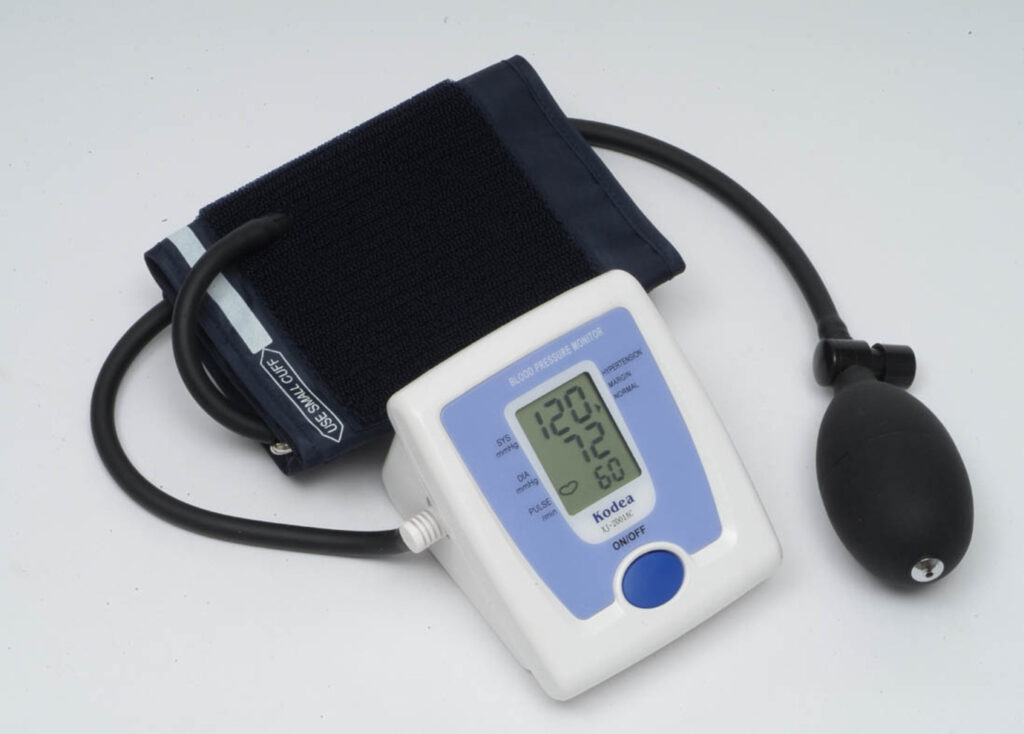Introduction: High blood pressure, or hypertension, is a common health condition that affects a significant number of individuals worldwide. It is crucial to manage and maintain normal blood pressure levels to promote overall well-being and reduce the risk of associated complications. In this article, we provide valuable tips and recommendations for effectively managing high blood pressure and achieving optimal health.
- Adopt a Balanced Diet: A healthy diet plays a pivotal role in controlling blood pressure. Emphasize consuming fruits, vegetables, whole grains, lean proteins, and low-fat dairy products. Limit the intake of sodium, processed foods, sugary beverages, and saturated fats. Incorporating heart-healthy foods such as nuts, seeds, and oily fish rich in omega-3 fatty acids can contribute to maintaining normal blood pressure levels.
- Regular Physical Activity: Engaging in regular physical activity is essential for managing high blood pressure. Aim for at least 150 minutes of moderate aerobic exercise or 75 minutes of vigorous activity per week. Activities like brisk walking, cycling, swimming, or dancing can help strengthen the cardiovascular system, promote weight management, and reduce blood pressure.
- Maintain a Healthy Weight: Excess weight can contribute to high blood pressure. Strive to achieve and maintain a healthy body weight through a combination of a balanced diet and regular exercise. Losing even a small amount of weight can have a significant impact on blood pressure levels.
- Limit Alcohol Consumption: Excessive alcohol consumption can raise blood pressure. It is recommended to limit alcohol intake to moderate levels, which means up to one drink per day for women and up to two drinks per day for men. However, it is advisable to consult with a healthcare professional regarding alcohol consumption, especially if there are other underlying health conditions.
- Manage Stress: Chronic stress can contribute to high blood pressure. Incorporate stress management techniques into your daily routine, such as deep breathing exercises, meditation, yoga, or engaging in hobbies and activities that promote relaxation. Adequate sleep and taking regular breaks from work can also help in managing stress levels effectively.
- Quit Smoking: Smoking tobacco products can significantly elevate blood pressure and increase the risk of heart disease. Quitting smoking is crucial for overall cardiovascular health and reducing blood pressure. Seek support from healthcare professionals, join cessation programs, or explore nicotine replacement therapies to successfully quit smoking.
- Regular Blood Pressure Monitoring: Regular monitoring of blood pressure is essential for individuals with hypertension. Use a reliable blood pressure monitor at home and keep a record of readings. This information can help healthcare professionals assess the effectiveness of lifestyle modifications or medications and make necessary adjustments.
Conclusion: Maintaining normal blood pressure levels is crucial for overall health and reducing the risk of cardiovascular complications. By adopting a balanced diet, engaging in regular physical activity, managing stress, maintaining a healthy weight, limiting alcohol consumption, quitting smoking, and monitoring blood pressure regularly, individuals can effectively manage hypertension. It is important to consult with healthcare professionals for personalized guidance and to discuss appropriate treatment options if needed. With consistent efforts and lifestyle modifications, individuals can take control of their blood pressure and lead a healthier life.

